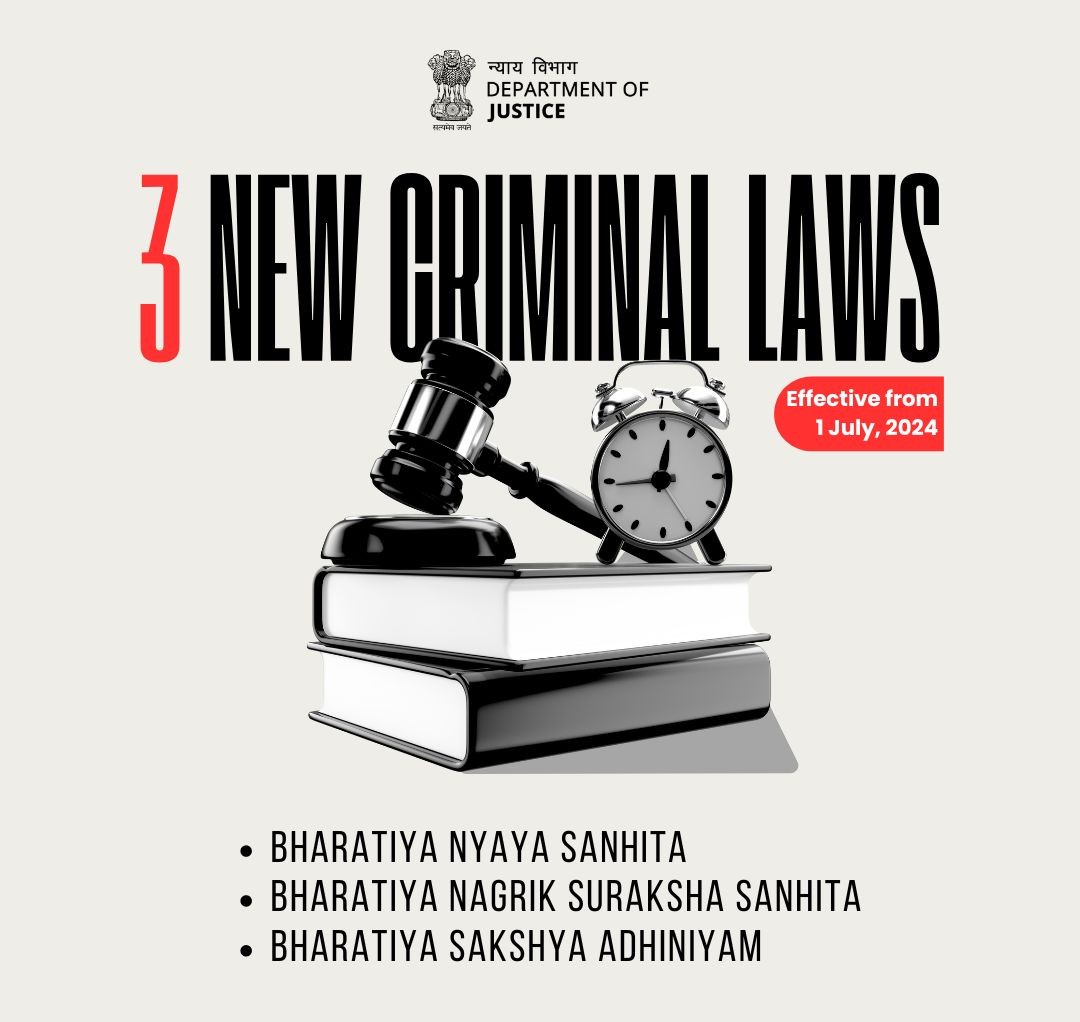Modernizing the Legal Framework:
India’s New Age of Justice: A Look at the 2024 Criminal Law Reforms
The BNS replaces the IPC with a more contemporary legal framework. It retains the core principles of criminal law but simplifies language, merges overlapping sections, and introduces new provisions to address emerging crimes like cyber offenses and financial frauds. Notably, the BNS includes a dedicated chapter on crimes against women and children, reflecting India’s commitment to protecting vulnerable sections of society.
Victim Empowerment and Streamlined Procedures:
The BNSS, which replaces the CrPC, prioritizes victim rights and faster justice delivery. One of the most significant changes is the introduction of the Zero FIR system. Under this system, victims can file a First Information Report (FIR) at any police station, regardless of where the crime occurred. This eliminates jurisdictional hurdles and facilitates prompt action. Additionally, victims are now entitled to receive regular updates on their cases and have access to copies of case documents. The law also mandates speedy trials by limiting adjournments.
Strengthening Evidence Collection:
The BSA, replacing the Evidence Act, emphasizes the importance of robust evidence collection. Notably, videography of crime scenes is now mandatory for serious offenses, ensuring a more comprehensive record of events. These changes aim to strengthen the prosecution’s case and improve conviction rates.
The Road Ahead:
While the new laws represent a significant step forward, their effectiveness will depend on implementation. Police training, public awareness campaigns, and robust infrastructure for digital processes are crucial for smooth functioning. The legal fraternity will also need to adapt to the new framework. The coming years will be crucial in evaluating the impact of these reforms on India’s justice system.
